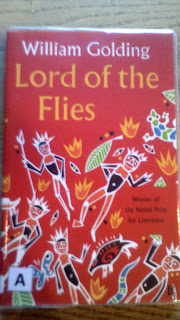This is a harrowing story that has as
its central idea that we western humans are not the civilised beings we imagine
ourselves to be. In the story, an aeroplane of schoolboys – no girls – crashes.
Only the children survive and find themselves marooned on a tropical island.
They have to work out what to do to survive. The book
portrays their descent into savagery; left to themselves on a paradisiacal
island, far from modern civilisation, the well-educated children regress to a
primitive state.
I read this book
when I was in Year 9 and although I have seen some amazing acts of kindness and
selflessness in the years since then, I have also seen enough to make me think
that William Golding is probably right in his assessment. This is not a fun
read but it might make you resolve to work harder at being helpful.






